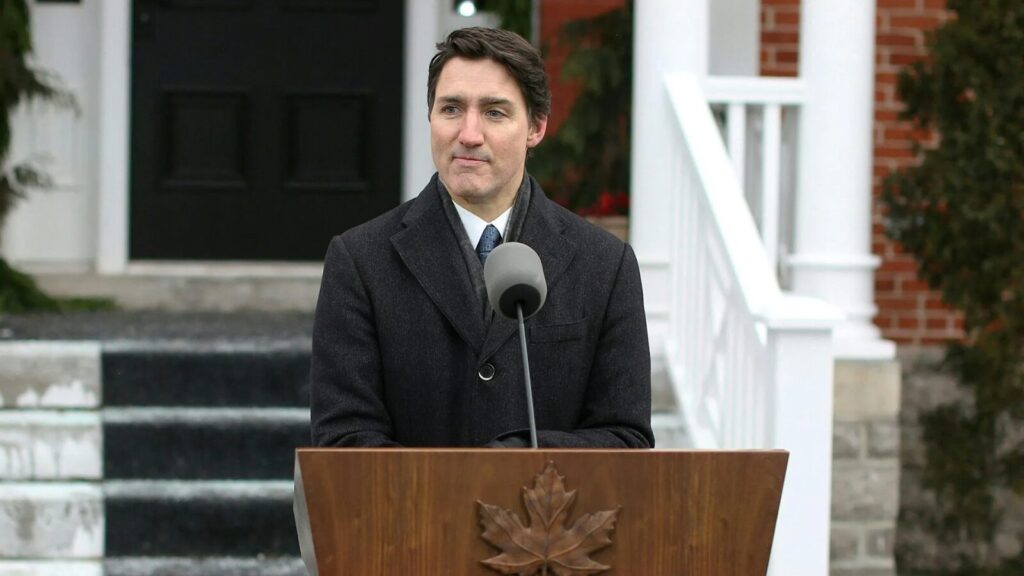Canadian Prime Minister Justin Trudeau, who has been in power for more than ten years, announced his resignation. He acknowledged that internal divisions hampered his ability to govern well and was therefore the main reason for his choice.
Trudeau said at a press conference, “When the party elects a new leader, I plan to resign as prime minister and party leader. I cannot be the person to carry liberal ideals into the next election. His departure is representative of Canadian politics.” major changes and begin discussions about future leadership and the impact it may have on many areas, including cryptocurrency.
Justin Trudeau announces resignation
Throughout his career, Trudeau has been an outspoken opponent of Bitcoin and other digital assets. In 2023, he attacked his political rival Pierre Poilievre, accusing him of pushing Canadians to invest in Bitcoin to fight inflation. Trudeau said if people followed such advice, they would lose half of their money, causing significant losses.
When his administration approved 34 crypto wallets during the Freedom Convoy 2022 event, the crypto community strongly opposed it. Many believe Trudeau overstepped his authority by using the Emergency Act when he froze protesters’ bank accounts and blocked Bitcoin payments.
Source: Justin Trudeau
The Trudeau government has been heavily criticized for its economic policies, especially given rising inflation. Many Canadians expressed dissatisfaction that these actions undermined their financial stability, thereby erasing confidence in his leadership. Economic hardship under his regime has fueled support for other strategies, particularly those supporting cryptocurrencies as a hedge against inflation.
Pierre Poilievre: Promoting cryptocurrencies
Following Trudeau’s resignation, Conservative leader Pierre Poliyev emerged as a serious contender in the next election. Poilievre has long supported Bitcoin and pushed Canadians to see it as a means of creating wealth and fighting inflation.
Poilievre visited nearby Bitcoin companies at public exhibitions to show his support and paid for lunch in cryptocurrency. He also expressed concerns about central bank digital currencies (CBDC), as he believed they would provide governments with too much financial power. Poilievre supported a measure to outlaw CBDCs, stressing that they could harm economic freedom and privacy.
Another possible successor to Trudeau is former Bank of England and Bank of Canada governor Mark Carney. Carney expressed cautious support for cryptocurrencies, especially stablecoins, depending on whether they meet key legal standards. His catch-all strategy may entice people to seek innovation within the grip of regulations.
Trudeau’s departure could open the way for governments to be more receptive to cryptocurrencies. A strong passion for Bitcoin and an understanding of the financial system have helped Poilievre emerge as a possible leader of Canada’s pro-cryptocurrency revolution.
Some Canadian provinces and cities are already considering adopting cryptocurrencies. In a sign of growing local interest, Vancouver City Council recently passed a resolution to investigate becoming a Bitcoin-friendly city.
Canada’s role in the global cryptocurrency space
Canada has made great progress in providing regulatory certainty for digital assets. Lucas Matheson, CEO of Coinbase Canada, claimed that Canada is a leader in the world in this sense. He emphasized the need to build long-term alliances with Canadians to enable them to diversify their digital assets and secure their financial future.
If a pro-crypto official is appointed, Canada could overlap with countries like the United States and El Salvador that have adopted Bitcoin and other virtual currencies. Such changes could help Canada become a global leader in cryptocurrency, encouraging innovation and economic development.
Trudeau’s departure marks the end of an era and opens up new opportunities in Canada’s political and economic arena. With the federal election just around the corner, the country must make a critical decision to reshape its attitude toward digital assets and financial creativity. Whether Canadians prefer pro-crypto leaders or the more traditional route, the effects of this change will be felt in the coming years.

